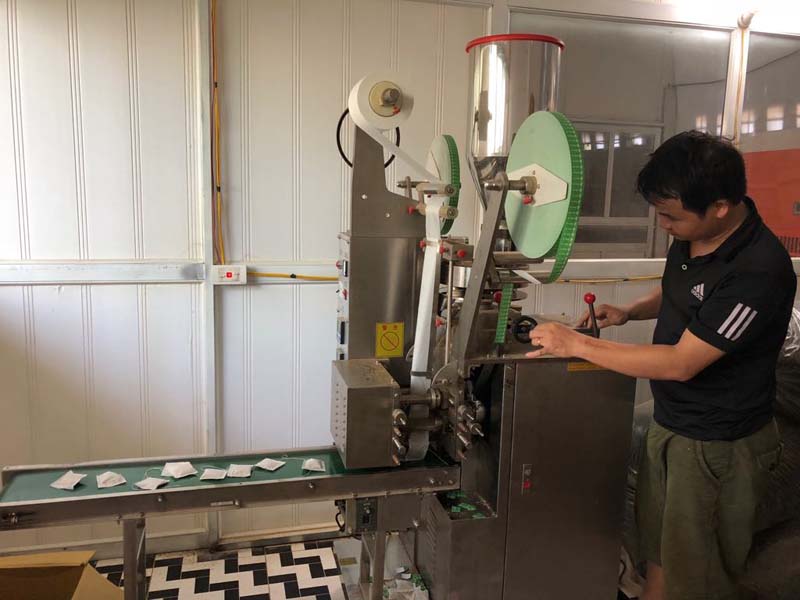
(HBO) -. At present, there are 13 enterprises and 540 private firms operating production and business in the field of industry, handicrafts (small industry and handicraft).

The hi-tech production line.
In 2017, in collaboration with the Provincial
Industrial Promotion Center, the district provided 200 million VND to Nam Son
Co., Ltd. to invest in technology (grinding machines). The district budget
supported 100 million VND for the enterprise producing cucumbers in Yen Lac
commune to buy machinery and equipment line, namely coolers and condensers,
with a total investment of over 300 million VND. The district continues to
cooperate with the Provincial Industrial Promotion Center, Muong Dinh Wine
Production Cooperative to finalize the documents of implementing the industrial
promotion Project in 2018, build the label for the wine of Dinh village, Phu
Lai commune.
By improving the efficiency of State
management and promoting investment attraction, the number of enterprises
operating in the field of industry and small handicraft industry in the
district has increased more than last year, operating in industry production
and services to be maintained stably, ensuring safety in production. The
handicraft industry as garment tends to develop. The value of manufacturing in
small industry and handicraft in the first 6 months of this year has increased
significantly, reaching nearly 542 billion VND with the current prices, up by
25.6% over the same period.
Beside the main industries such as garment,
soldering, milling, carpentry, processing enterprises have made a great
contribution to the industrial production value, for example, X18 Cement JSC
produces 380,000 tonnes per year, which is equivalent to 400 billion VND. Some
other enterprises are Hong Ha casting joint Stock Company, MDF Co. Ltd, Yen
Thuy One Member Co. Ltd., GL Ninh Binh Co. Ltd., 2 – 9 One Member Co., Ltd.
These enterprises created jobs for nearly 1,000 employees with the average
income of 4-5 million VND/ person / month.
The individual establishments also created
jobs and stable incomes for over 2,000 laborers, each firm creates jobs and
incomes for 4 - 5 laborers.
Dao Village’s honey – a product certified with a 3-star OCOP (One Commune One Product) rating by Thong Nhat Agricultural Cooperative in Dao Village (Hoa Binh City) – is highly regarded by consumers for its quality, richness, and variety in packaging. The distinctively sweet taste of Dao Village’s honey leaves a lasting impression on anyone who has tried it.
In alignment with Project No. 07-DA/TU, issued by the Hoa Binh provincial Party Committee on November 1, 2021, Lac Thuy district has actively promoted investment and supported the sustainable development of its industrial and handicraft sectors during the 2021–2025 period. Alongside this, the district has remained committed to preserving and revitalising traditional craft villages.
Located in the northern part of Lac Thuy district, with a temperate climate and fertile soil, Phu Thanh commune has great potential and advantages in growing tea. The long-standing experience, combined with strict adherence to organic farming practices in the tea gardens, ensures that the dried tea products from Phu Thanh and Lac Thuy as a whole are sold out immediately upon production, providing a stable and prosperous life for the local people.
Amid efforts to streamline the administrative apparatus, Hoa Binh province has intensified measures to address challenges in land clearance, resettlement support, and infrastructure investment, aiming to speed up the progress of key projects.
Hoa Binh province has posted an unprecedented economic growth rate of 12.76% in the first quarter of 2025, marking its highest quarterly performance to date and positioning it as the second fastest-growing locality in the country, trailing only Bac Giang province.
Under current regulations, products in the One Commune – One Product (OCOP) programme that are rated three stars or higher must undergo re-evaluation every three months. However, in reality, some of these products fail to consistently meet the required standards, raising concerns about the sustainability of their OCOP certification. This underscores the urgent need for producers to enhance product quality and gradually develop their OCOP products into strong, marketable brands.



